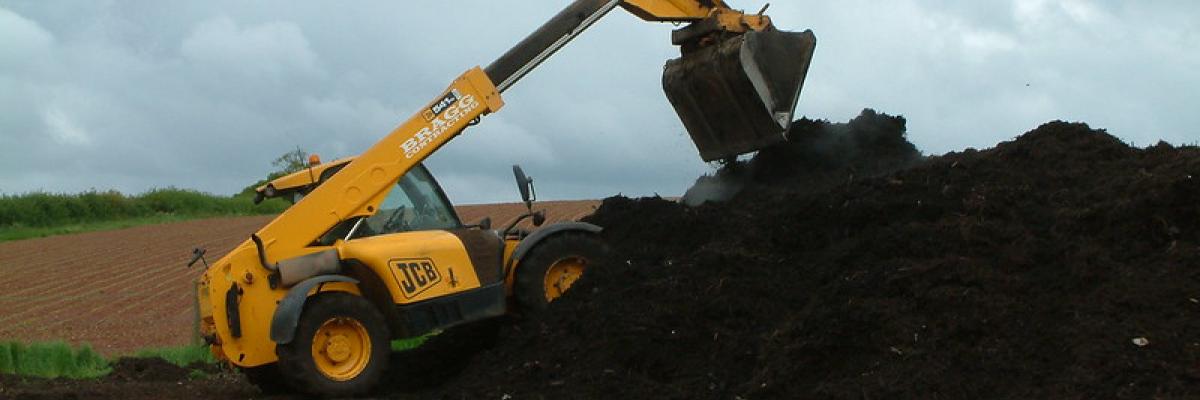
Use of green waste compost
Organic Management Techniques to Improve Sustainability of Non-Organic Farming
Download the PDF
This abstract was composed as part of a Defra-funded project looking at organic management techniques that could be applied on non-organic farms and help improve sustainability. It describes how to tackle reductions in soil organic matter in arable soils and find alternative sources of soil fertility. Green waste compost can be applied to fields as a valuable soil amendment, reducing fertiliser use and improving soil health, whilst reducing landfill. It lists the main agronomic, economic and/or ecological value you can expect to gain. It includes practical recommendations that will help you implement the method and other useful information such as the time of year you could apply the method, suitability according to your farming system, and equipment required. It also includes case study of a farm applying the practice. Potential benefits and barriers you would need to consider, financial implications, and how it relates to legislation are also listed.
- Most UK farm assurance schemes now permit the use of compost certified under the Compost Certification scheme with PAS100 specification.
- Repeated applications of green waste compost can lead to long term improvements in soil organic matter, soil water retention and soil structure, workability, reduced overall fertiliser costs, and improved soil nutrient status.
- Increases in crop yield and resilience may be seen - particularly in poor growing seasons.
- To help minimise soil compaction, you should take the weather forecast and soil conditions at time of application, and the application equipment available into account.
- It is best to apply green waste compost at times of maximum crop uptake - generally late winter/spring. Avoid applying to frozen, snow covered or waterlogged ground.
- You should base application rates on your farm’s nutrient management plan and calculate from the nutrient requirements of the crop and the typical nutrient contents of the compost.
- Repeated applications over a number of years will bring most benefits in terms of soil improvements, increasing soil organic matter and nutrient availability.

